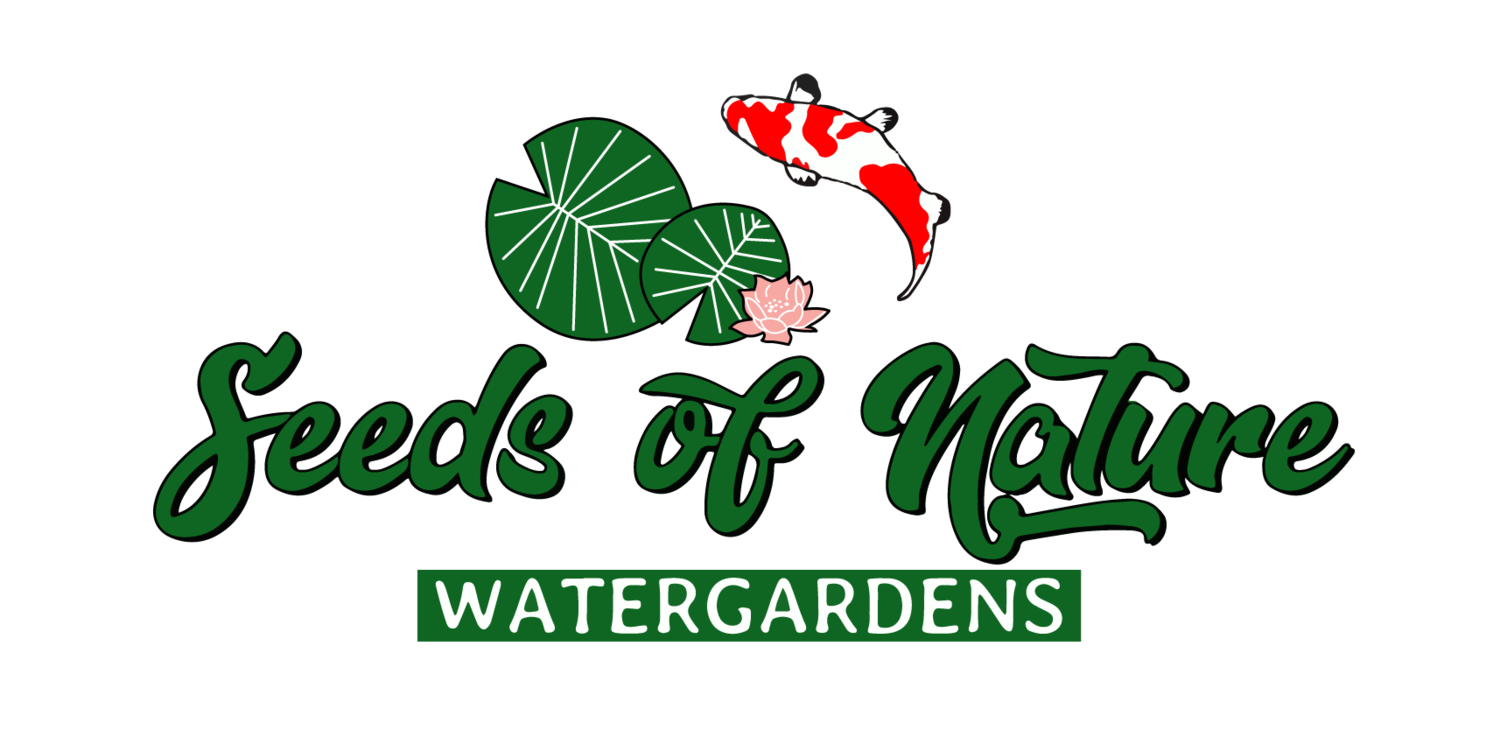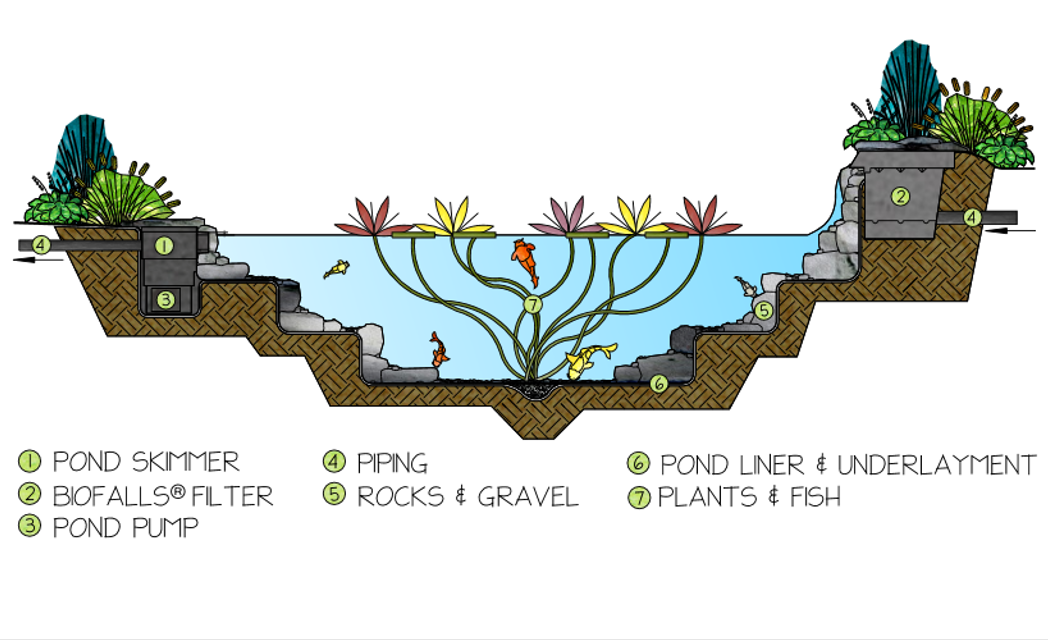That is, if they are built correctly. Is your pond constructed properly?
Let’s dive in.
Now what we think of ponds, and the many definitions of ponds, include characteristics such as their smaller than lake size, not having wave formations crashing on their shores, and of course standing water.
Oxford dictionary defines ‘pond’ as, “A small body of still water formed naturally or by artificial means.” In it’s archaic form, pond, comes from the word “pound” meaning “a place of confinement.”
Standing water creates water quality issues, not only for clarity, but for the health of the ecosystem.
And yes, backyard (or front yard) ponds are in fact an ecosystem, and should be treated as such. Stagnant water is more easily a host to parasites, creates nutrient pockets, and allows algae to grow unchecked. Add fish to the mix and this becomes a recipe for disaster.
Properly built ponds have several characteristics that distinguish them from their poorly constructed counterparts. One of them is circulation. Like a river system the water should be constantly circulating. In this closed river system the water goes from the ‘pond’ to the mechanical filtration, also known as a skimmer, up to the filter, where beneficial bacteria lives on biological media and converts nutrients making your water safe for fish and plants, down through the waterfall, adding oxygen to the system, and then back around the cycle again.
Even with these basics, the placement of these components, is absolutely key, and will make or break a successful ecosystem design.
This is all not to mention that the overwhelmingly favorite fish to keep, Koi, are actually derived from Carp whose habitat is in river systems.
As you can see these ponds are much like a river system where the constant flow of water, constantly being oxygenated, is being filtered through rocks and gravel which house beneficial bacteria. Understanding this ‘bio-mimicry’ is essential to having pristine water quality for your family and your finned friends.
Too often do we see ponds done wrong and frustrated homeowners calling us to troubleshoot issues that should never have occurred if their ponds were built correctly in the first place. I hope you’ve learned something, and can prevent future headaches by either hiring the right person, or making the right choices when continuing with your pond project.
If you have any questions regarding pond construction or the maintenance of your paradise please don’t hesitate to reach out!

